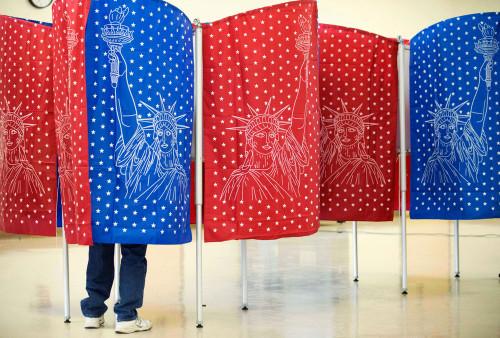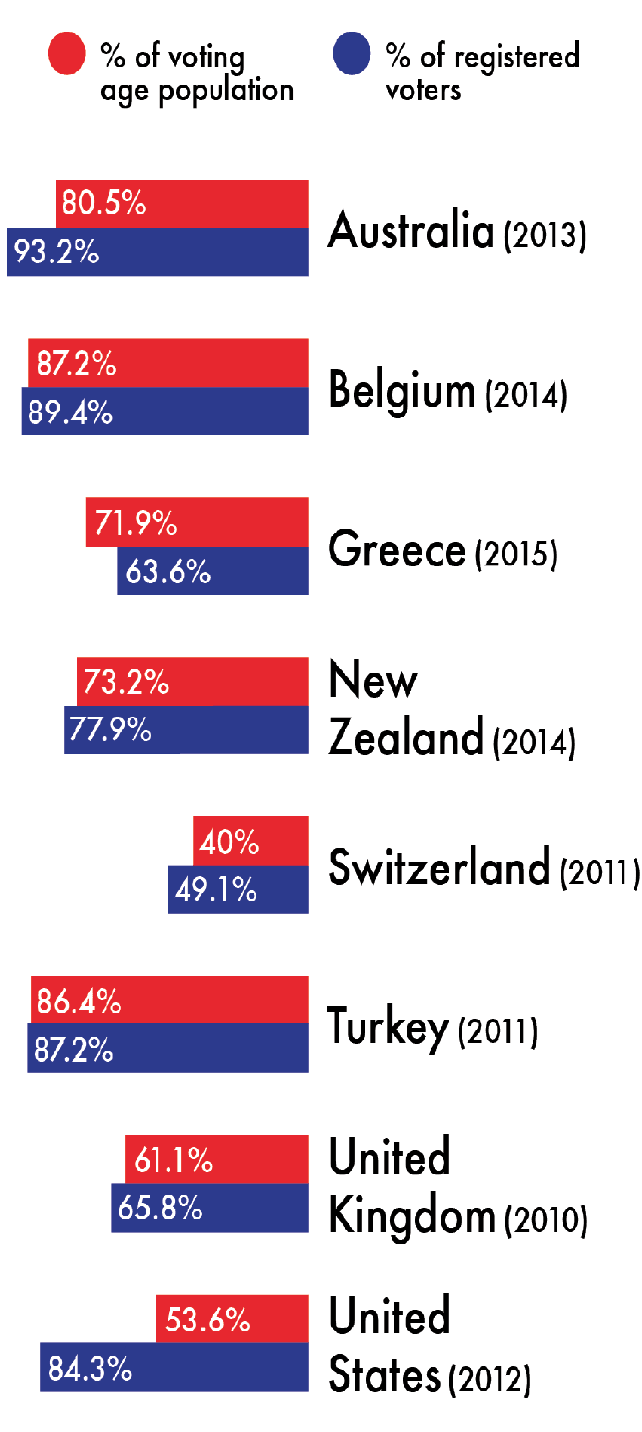
The very cornerstone of our democracy — high voter turnout — is necessary to ensure our elected officials are the right people to represent what’s best for their constituents. But in modern American politics, everything is a partisan debate — even voter registration. Two states in particular have taken major steps towards increasing the number of voters, and others should soon follow suit.
Last year, Oregon became the first state to begin automatic voter registration for eligible voters when they renew or apply for their drivers’ licenses. Shortly after, California passed a similar law. The Oregon Motor Voter Act also automatically registers all eligible voters who have interacted with the DMV since 2013. The Oregon Elections Division will send registered voters mail explaining their three options: choose a political party, opt out or do nothing. For those who choose to do nothing, they will be registered as a nonaffiliated voter.
Thus far, the Oregon Motor Voter Act has proven effective. Secretary of State Jeanne Atkins told The Fix that by Jan. 7, Oregon was on track to register four times as many voters in the month of January than in December 2015.
Oregon has historically been a leader in creating a more convenient, accessible voting system. In 1998, it became the first state to adopt vote-by-mail. Two to three weeks before an election, registered voters receive an official ballot in the mail. To return their ballot, voters use the provided security envelope and either stamp and mail it or drop it off at an official ballot drop box. Since adopting this system, Oregon has consistently ranked among the top states for voter turnout in the United States.
During his recent visit to Illinois, President Barack Obama encouraged state legislatures to follow Oregon and California’s lead and pass an existing bill that would automatically register eligible voters when they apply for or renew their drivers’ license.
“Let’s make the land of Lincoln a leader in voter participation,” Obama said. “Let’s set the pace — encourage other states across the country to follow our lead, making automatic voter registration the new norm across America.”
Considering automatic voter registration’s ability to increase voter turnout, it seems like a no-brainer. Unfortunately, not all politicians are onboard with taking steps to increase voter turnout. While Democrats overwhelmingly support the measure, most Republicans are adamantly against it. Voter fraud continues to be a major concern for conservatives. A Marquette Law School poll found that 36 percent of Republicans believe voter fraud affects a few thousand or more votes. Just seven percent of Democrats and 20 percent of Independents held this view. To combat this alleged phenomenon, Republicans support Voter ID laws that require voters to provide state ID to cast their ballot.
Voter ID laws achieve the opposite of automatic voter registration. Instead of encouraging citizens to participate in the democratic process, they create obstacles that can discourage citizens from voting. Voter ID laws have been proven to disproportionately affect minority voters, especially blacks and Latinos.

John Oliver addressed the issue with Voter ID laws on a recent episode of his HBO series, “Last Night Tonight with John Oliver.”
“(State IDs are) just one of those things that white people seem to be more likely to have,” he said. “Like a sunburn, or an Oscar nomination.”
The United States has proven to lag behind other democratic countries in terms of voter turnout. When Obama was re-elected in 2012, just 53.6 percent of eligible voters cast a ballot. Australia leads the world in voter turnout with 80.5 percent of eligible citizens voting in the 2013 election for prime minister.
It is important to note that Australia has compulsory voting, meaning that eligible voters who do not participate can be fined or face community service. Australians do have the option to keep their ballot blank instead of choosing a representative. According to The New York Times, Australians who fail to vote face a $20 fine.
Forcing citizens to vote may be effective, but in a country that values individual liberty so highly, obliging citizens to vote seems un-American. Even without a law requiring Americans to vote, those eligible should consider the right to vote as a responsibility.
DePaul junior Carly Moore believes neglecting to vote simply gives one’s voice and opinion to another.
“When people don’t vote they ultimately hand over their power as a voter to someone else,” she said. “When someone says they didn’t vote, it starts this ‘tragedy of the commons’ effect where if someone doesn’t vote because they think it’s insignificant, there is most likely 1,000 other people that thought the same thing.”
Currently, there are 48 states that do not have automatic voter registration. According to a study conducted by the New York University School of Law’s Brennan Center for Justice, legislators in 14 states — Illinois included — have introduced bills in 2016 that would automatically register eligible citizens to vote. Rep. David Cicilline of Rhode Island has also introduced a bill to implement automatic voter registration nationwide.
Every American, regardless their race or income, has the civil duty to inform themselves on the policies of candidates and making a well-educated vote. However, our elected officials have failed the American people. Politicians should actively work to make the voting process accessible and encourage their constituents to participate in the process. Establishing automatic voter registration may not result in a significant increase in voter turnout, but making the voting process as accessible as possible is the sign of a true democracy.

